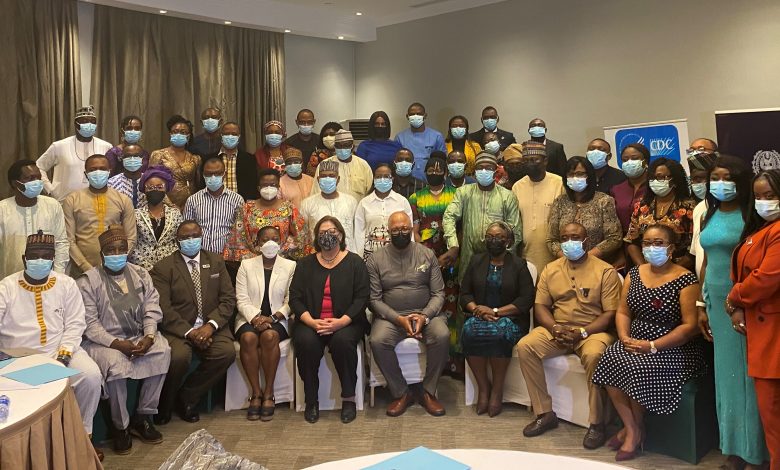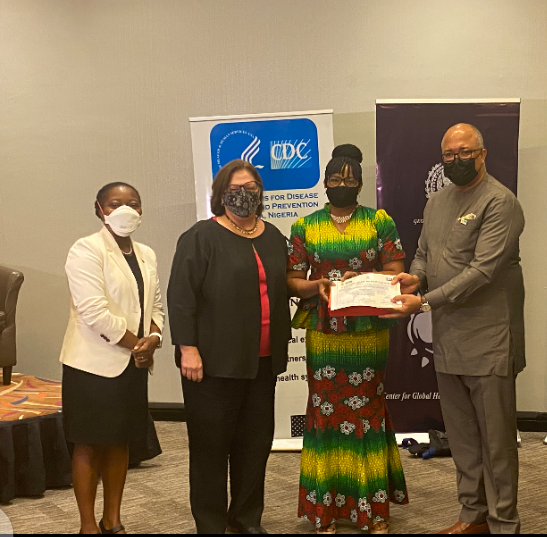

Forty senior Nigerian public health Officials have been certified in the first cohort of the intermediate-level Public Health Emergency Management Professional Certification Programme, PHEM PC, adapted from the United States Centers for Disease Control and Prevention, US-CDC.
The US-CDC in collaboration with its local counterpart, the Nigerian Centre for Disease Control, NCDC and Georgetown University had collaborated to deliver the professional certification training held in Lagos State for the health workers who were drawn from the NCDC, state-level Ministries of Health, Nigeria Port Health Services, and the Nigerian military.
The two-week long certification programme is in line with Nigeria’s efforts to boost pandemic preparedness as a Global Health Security Agenda, GHSA, partner. In 2019, Nigeria became one of the 70 GHSA partner country committed to achieving a world safe and secure from global health threats posed by infectious diseases.
The PHEM PC Programme equipped the emergency managers, incident managers, state epidemiologists, first responders, watch managers, and other public health experts with specialized training in crisis and emergency risk communication, public health emergency management functions, and operations.
In a remark during the closing of the course, the US Consul-General, Ms Claire Pierangelo, said it highlighted her Country’s continued strategic partnership with Nigeria.
Ms Pierangelo who stated that in the recent past, the US Government had funded the participation of 4 Nigerians to attend the advanced Public Health Emergency Management Fellowship programme at CDC headquarters in Atlanta, reiterated her Country’s commitment to promoting the health and wellbeing of Nigerians.
“Emergency Management is one of the 11 capacity building prioritized by the USG in its support of Nigeria. Our primary goal is to continue supporting Nigeria to achieve the Global Health Security Agenda (GHSA) 2024 targets and the International Health Regulations (IHR) requirements by strengthening workforce development, surveillance, emergency response, and laboratory capacity, among other areas. As Nigeria consolidates country capacity for public health response by establishing State Public Health Emergency Operations Centres (PHEOC) across the country, we envision expanding PHEM capacity across Nigeria by training more stakeholders to ensure adequate knowledge, competencies, and skills to efficiently manage technical operations of the PHEOCs. She said.
Speaking in the same vein, the US-CDC Country Director, Dr Mary Boyd said the US is looking forward to positive impacts of the programme which is a train-the-trainers’ course.
The Director-General of the Nigerian Centre for Disease Control, Dr Chikwe Ihekweazu, challenged the participants especially those from the different States of the Federation not to shy away from self evaluation and to make judicious use of the process and knowledge acquired in the course of the training.
“Please put to practice what you have learnt, don’t do business as usual, they may tell you that change is not for the public sector, it is for the private sector, this is not true, we cannot build our country if we do not improve, so, challenge your colleagues in new ways of managing public health emergencies, we will keep having infectious diseases outbreaks, it’s a fact of nature, what we we’ll keep improving is our ability to manage these and make sure that we protect Nigerian citizens from the worst outbreaks of these infections” Dr Ihekweazu emphasized.
In a chat with Radio Nigeria, two of the participants; the Acting State Epidemiologist, Ekiti State, Dr. Bosede Alowo-Oye and Edo State Epidemiologist, Dr Uwa Okhuarobo, described the training as intensive and pledged that they would engage the relevant authorities on a more robust approach to infectious diseases and public health management.
They said “A very intensive two weeks experience and this training has given us the opportunity to close some of the gaps that Covid-19 has exposed us to, we have been responding to the Covid-19 outbreak, to the cholera outbreak, now we have better understanding to make changes for better outcomes in building our public health infrastructure in the State”.
The training continues virtually for the next three months.




